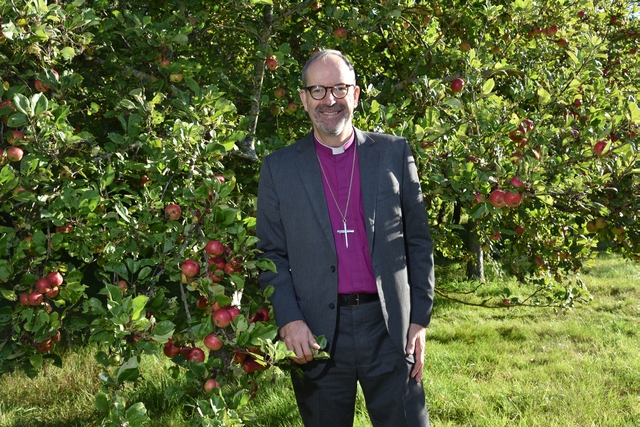
Hello everyone and welcome to this week’s video.
A few weeks ago, I had a great morning with a group of young people from Hereford Sixth Form College. Keena Robertshaw and I were speaking to the subject Christianity, Racist and Irrelevant? As is usually the case with sixth formers in this setting, they were polite, attentive, and asked some typically searching questions after the talks, questions that people have asked for generations.They also had genuine curiosity about our story of faith.It is a tragic fact, that in a College of over 2000 students, the Christian Union rarely has double figures in attendance, and virtually none of these attend a Church of England Church. Most of the students have not had any experience of church for generations.Their questions were motivated by a curiosity about something that is completely outside their experience.
Older people can be rather judgemental about the young.Their culture is different, and in their understandable insecurity, they can project an air of indifference or hostility. But scratch beneath the surface and you will find a passion for justice and the environment, a need to be accepted, and a deeply human desire for love, significance and purpose.They are growing up in a world without the comfortable security of moral absolutes, where much ethical reasoning is about choices and consequences.This is a very insecure place to be. It rather annoys me when tabloid newspapers take cheap shots against the ‘snowflake generation’. It might be better to walk a mile in their shoes, where they leave university with huge debts, have insecure employment prospects, and little prospect of buying a house of their own.So many of the rites of passage we took for granted are denied them.
Most generations are quick to judge the lives of the young. The following sounds like something the Daily Mail might write. “The children now love luxury; they have bad manners, contempt for authority; they show disrespect for elders and love chatter in place of exercise. Children are now tyrants, not the servants of their households. They no longer rise when elders enter the room. They contradict their parents, chatter before company, gobble up dainties at the table, cross their legs, and tyrannize their teachers.”Except it was written by Socrates 2500 years ago.
If you’ve been following the morning prayer readings over the last few weeks, you’ve probably had as much as you can take of the book of Kings.It’s a depressing story of immorality, barbarism and injustice as Israelite society spirals down into decline. Some of the kings are just rotten through and through, some of them are upright, but many begin well, and go off the rails as they get older.Far from the young being the problem, it’s the middle aged who are really responsible for leading the nation down the pan.
The value of the intergenerational community envisaged by the scriptures, both for the Church and for Israel, is that different generations can inform and critique one another.Those of us who are getting a bit jaded can be inspired by the passion of young people who haven’t yet learned to be cynical. One hopes that with good relationships some of the wisdom of age might rub off in the process. Different generations have different blind spots to sin and frailty.Its just those of the old and the young are different.
If the church of England is to survive, and I use that word deliberately, we have to re-connect with children and young people. In the New Testament, evangelism is all about us moving to inhabit the space of others not expecting them to come to us on our terms. An established church, like ours, that has historically been a chaplain to the nation assumed to be Christian is particularly vulnerable to a loss of cultural reinforcement. When faith is no longer taught in schools and there are other things to do on Sunday we get left behind. Its good to have a fuzzy fringe as that makes clear our welcome to all.But, as I’ve said before, one of the reasons for our decline in the church of England is not that we demand too much of Christian discipleship but that we demand too little.
Churches that have numbers of young people are usually churches with a clear conviction of the truth of the gospel and the demands it makes on us individually.They are churches that are prepared to make space for forms of worship that engage different cultures and they’re prepared to pay for it. Sociologists will tell you that people movements that grow and thrive have both a cultural connection and a dissonance that shows that being a member requires a sacrifice.At our best we have both, at our worst we have neither.
If we are to be a church that reaches this missing generation, which is now most of those under 40, we have a mammoth task.It will take huge courage and openness to change at a deep level.It would be a profound betrayal of the gospel if we followed King Hezekiah in Isaiah 39:8 who when warned by the prophet that Judah would fall, basically said it won’t happen in my lifetime so I’ll be OK.
Mercifully, alongside Kings we’ve been reading Philippians, where in Ch. 2: 13, Paul writes that God works in you both to will and to act in order to fulfil his good purpose. The courage to change is a fruit of the Spirit. We need that fruit more than ever.
